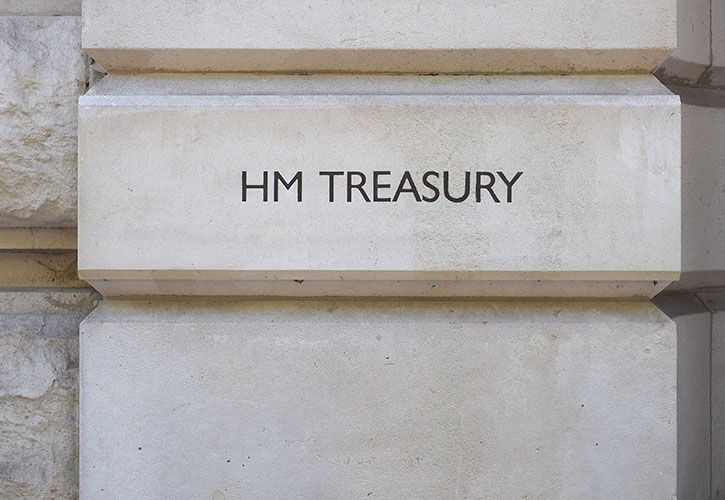UK DIY News
BRC And Retail Leaders Write To Chancellor Over Budget

This is a copy of the Letter to Rachel Reeves that was sent yesterday and signed by 81 retail CEOs.
Economic consequences of the Autumn Budget for UK retail
We are writing to share our significant concerns about the impact of the Budget on the retail industry and the economic consequences for inflation, employment and investment.
Retail is in every community and is vital to the socio-economic fabric of the UK. It is the largest private sector employer, with three million direct jobs and 2.7 million more in the supply chain, contributing over £100bn per annum to GDP. This scale and reach means the industry can be a partner to government, supporting the reinvigoration of high streets, creating jobs all over the country and supporting the government’s ambitions for growth.
We appreciate government’s focus on improving the fiscal situation and investing in public services; we also recognise the role businesses have in supporting this. But, the sheer scale of new costs and the speed with which they occur create a cumulative burden that will make job losses inevitable, and higher prices a certainty.
Cumulative cost burden
The estimated additional costs arising in 2025 are set out below. The impact of the Budget NIC threshold change is particularly acute given retail employs large numbers of people in entry-level and part-time roles. Costs from the Budget sit alongside other incoming regulations, including implementation of new packaging levies.
New Costs | From | Cost |
Budget Employers' NIC changes |
|
|
| April 2025 | £0.57 billion |
| April 2025 | £1.76 billion |
National Living Wage increase | April 2025 | £2.73 billion |
Packaging Levy | October 2025 | £2.00 billion |
Total |
| £7.06 billion |
Taken together, the retail industry’s costs could rise by up to £7bn a year. This will also affect our suppliers, increasing costs that retailers pay for goods and services.
Business rates
While the 30 October Discussion Paper recognised the need to bring down the burden for retail and hospitality, as things stand, retailers’ bills will increase by £140 million in April 2025 due to the inflationary uplift and a reduction in the existing retail discount for those businesses that receive it. We are concerned the proposals merely redistribute rates within the industry and would see many retailers’ bills significantly increase. Changes must lead to a significant, permanent reduction of rates bills for all retail properties if they are to offset the effects of the extra costs above in any meaningful way.
Economic consequences
Retail is already one of the highest taxed business sectors, along with hospitality, paying 55% of profits in business taxes. Despite this, we are highly competitive, with margins of around 3-5%, ensuring great value for customers.
For any retailer, large or small, it will not be possible to absorb such significant cost increases over such a short timescale. The effect will be to increase inflation, slow pay growth, cause shop closures, and reduce jobs, especially at the entry level. This will impact high streets and customers right across the country. We are already starting to take difficult decisions in our businesses and this will be true across the whole industry and our supply chain.
Proposed next steps
We would welcome the opportunity to meet with you to discuss our concerns and to work together on a solution. By adjusting the timings of some of these changes, the government would give businesses time to adjust and greatly mitigate their harmful effects on high streets and consumers. This discussion could include:
- On National Insurance, phasing the introduction of the new lower earnings threshold;
- On packaging levies, delaying the timelines for implementation;
- On business rates, revisiting the proposals announced at the Budget and bringing forward the timetable so benefits can be realised earlier.
This letter reflects the strength of feeling across the industry. We look forward to meeting you.
Signatories: Giles Hurley (Aldi Stores UK), Peter Wood (All Saints), John Boumphrey (Amazon), Lord Rose (Asda), Sue Kemp (Associated Independent Stores), Graham Bell (B&Q), James Barker (Barker and Stonehouse), Nick Collard (Bensons for Beds), Meryl Halls (Booksellers Association), Anthony Hemmerdinger (Boots UK & ROI), Charmaine Griffiths (British Heart Foundation), Helen Dickinson (British Retail Consortium), Gerry Murphy (Burberry), Darcy Willson-Rymer (Card Factory), Colin McLean (CJ Lang & Son), Mireille Baumgart (Concept Living), Alex Baldock (Currys), Eric Mazillier (Decathlon), David Robinson (Dobbies Garden Centres), Kenny Wilson (Dr Martens), Nigel Darwin (Dune Group), Nigel Murray (EH Booth & Co), Sian Westerman (Fenwick), Ed Duggan (Fishpools), Nick Scott (Footasylum), Noel Coyle (Fraser Hart), Roisin Currie (Greggs), Henrik Nordvall (H&M), Doug Putman (HMV), Anthony Houghton (Holland & Barrett), Fran Barnes (Horticultural Trades Association), Regis Schultz (JD Sports Group), Nish Kankiwala (John Lewis Partnership), Thierry Garnier (Kingfisher), Mac Plumpton (Leon Restaurants), Ryan McDonnell (Lidl GB), Darren Topp (LK Bennett), John Colley (Majestic Wine Warehouse), Nathan Williams (Mamas & Papas), Mike Tomkins (MandM Direct), Stuart Machin (Marks and Spencer), Nick Stowe (Monsoon Accessorize), Rami Baitiéh (Morrisons), Mark Neale (Mountain Warehouse), Phil Ponsonby (Midcounties Co-operative), Noel Keeley (Musgrave Group), Anthony Short (Music Industries Association),Steve Johnson (N Brown), Lord Wolfson (Next), Helen Connolly (New Look), Hannah Gibson (Ocado), Oliver Tress (Oliver Bonas), Paul Stirling (One O One Convenience Stores), Lyssa McGowan (Pets at Home Group), Austin Cooke (Poundland), Kari Rodgers (Primark), Nick Vance (Radley+Co), Christos Angelides (Reiss), Julie Abraham (Richer Sounds), Christina Dowling (Rigby & Peller), Warren Cohen (River Island), Simon Roberts (Sainsbury’s), Pete Cheema (Scottish Grocers’ Federation), Karen Scott (Scottish Midland Co-operative Society), John Mewett (Screwfix), Colin Temple (Schuh), Paul Hayes (Seasalt), Michael Fletcher (Spar UK), Peter Bainbridge (Specsavers), Julian Dunkerton (Superdry), Craig Ash (Swarovski UK), Matthew Barnes (Tesco), Gill Smith (The Perfume Shop), Patrick Birkbeck (The House of Bruar), Ian Williams (The Original Factory Shop), Michael Rolland (The Paint Shed), Mark Smith (The Southern Co-operative), Gavin Peck (The Works), Robert Parker (Topps Tiles), Nathan Smith (Whittard of Chelsea), David Wood (Wickes Group)
Source : BRC
Image : claudiodivizia / iStock / 1178304624
Insight provides a host of information I need on many of our company’s largest customers. I use this information regularly with my team, both at a local level as well as with our other international operations. It’s extremely useful when sharing market intelligence information with our corporate office.











































